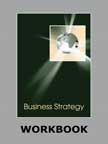Restructuring Citigroup: The Bank in Trouble




|
|
ICMR HOME | Case Studies Collection
Case Details:
Case Code : BSTR330
Case Length : 19 Pages
Period : 2000-2009
Pub Date : 2009
Teaching Note :Not Available
Organization : Citigroup
Industry : Banking & Financial Services
Countries : US
To download Restructuring Citigroup: The Bank in Trouble case study
(Case Code: BSTR330) click on the button below, and select the case from the list of available cases:

Price:
For delivery in electronic format: Rs. 300;
For delivery through courier (within India): Rs. 300 + Rs. 25 for Shipping & Handling Charges
» Business Strategy Case Studies
» Case Studies Collection
» Business Strategy Short Case Studies
» View Detailed Pricing Info
» How To Order This Case
» Business Case Studies
» Area Specific Case Studies
» Industry Wise Case Studies
» Company Wise Case Studies
Please note:
This case study was compiled from published sources, and is intended to be used as a basis for class discussion. It is not intended to illustrate either effective or ineffective handling of a management situation. Nor is it a primary information source.
|
|
<< Previous
Introduction Contd...
|
Citi had also issued US$ 7 billion worth of preferred stock to the US Fed in return for the Fed guaranteeing its US$ 301 billion worth of mortgages, junk grade loans, and sub-prime securities. It was reported that executives from Citi had approached the US Treasury Department (Treasury) to convert some of its preferred stock into common equity. This move would enable Citi to increase its tangible common equity (TCE)3 which, investors felt, was an important indicator of the bank's financial health. However, Barack Obama's4 administration announced on February 23, 2009, that it favored leaving banks in private hands as of that date but that it was keeping all its options open for future actions that could include short term nationalization of banks in case the economic scenario demanded such action.
|
|
Citi, once the largest bank in the US in terms of assets, faced major trouble after the sub-prime crisis emerged in the US (Refer to Exhibit II for a note on sub-prime crisis). The sub-prime crisis which resulted in huge losses for Citi led to the exit of its CEO and Chairman Charles O. Prince (Prince) in November 2007. Robert E Rubin (Rubin)5 was made the interim Chairman and Sir Win Bischoff (Bischoff),6 the interim CEO. In December 2007, Citi's
investment bank and alternative investment groups head - Vikram Pandit (Pandit) was made the CEO (Refer to Exhibit III for Pandit's Background)...
Excerpts >>

|


